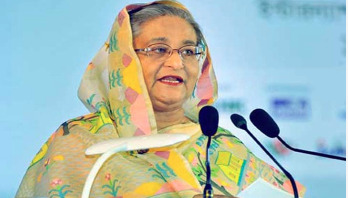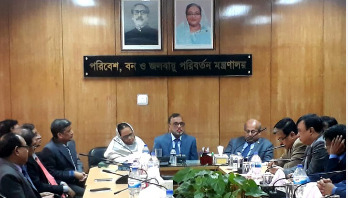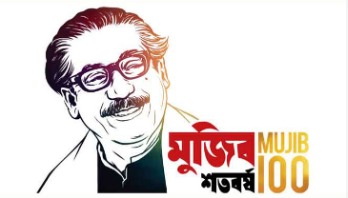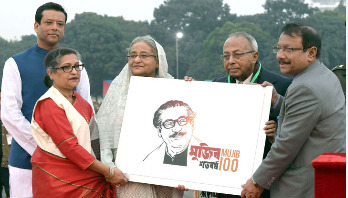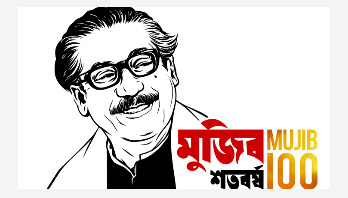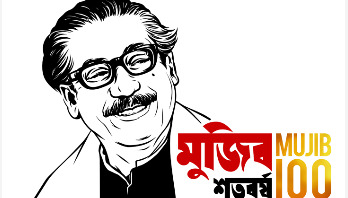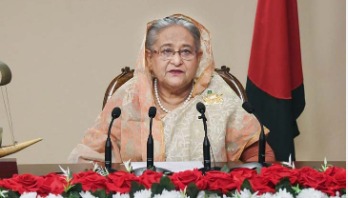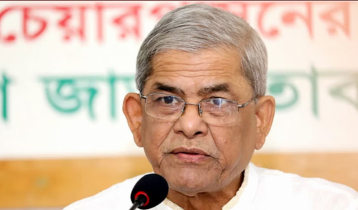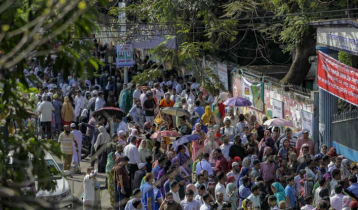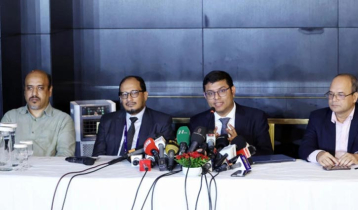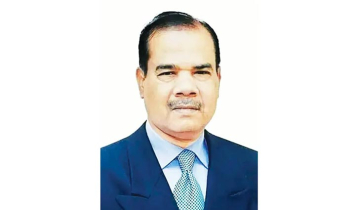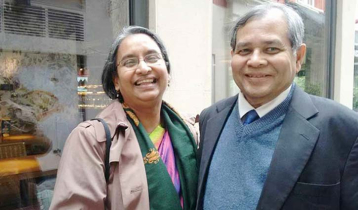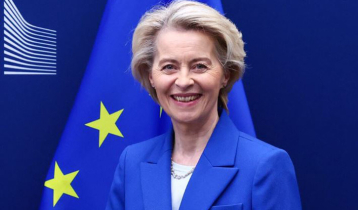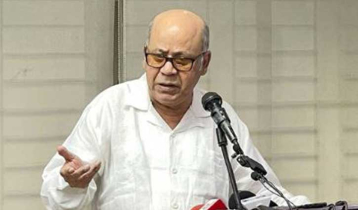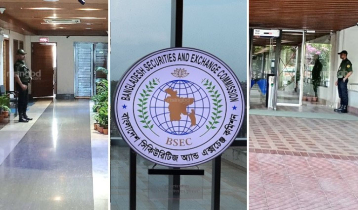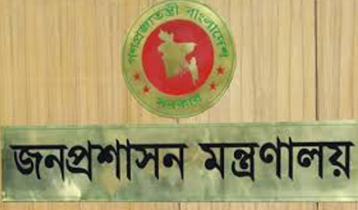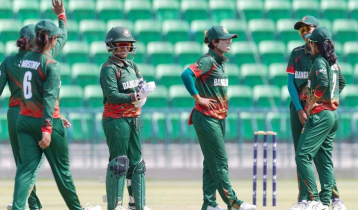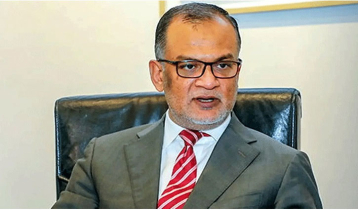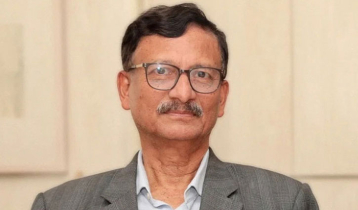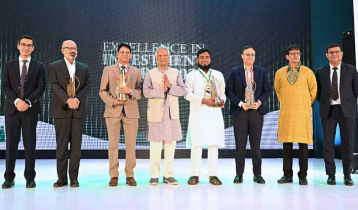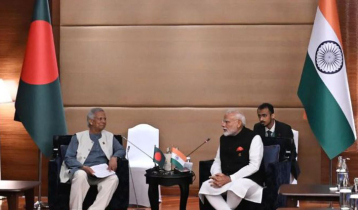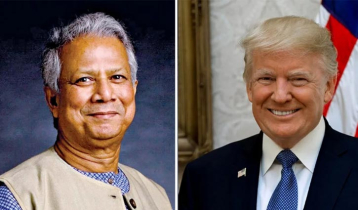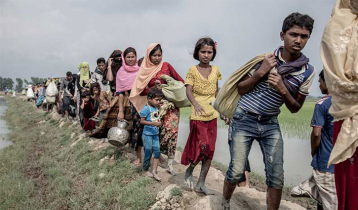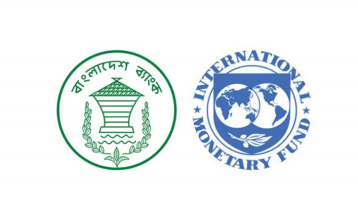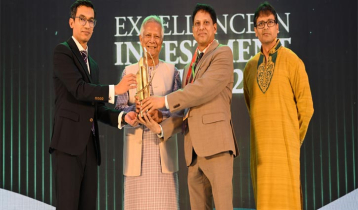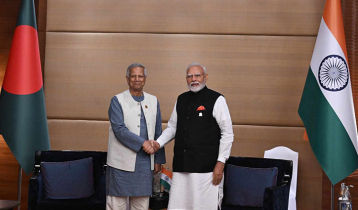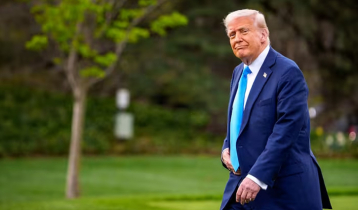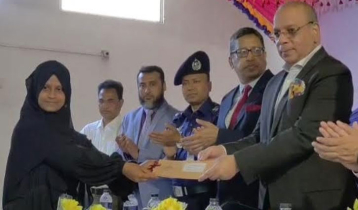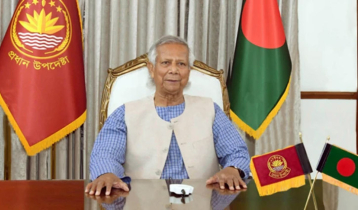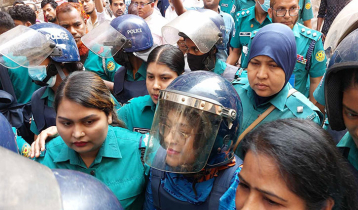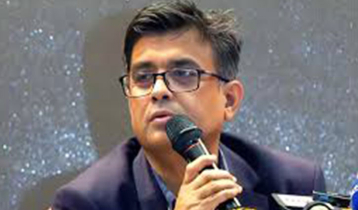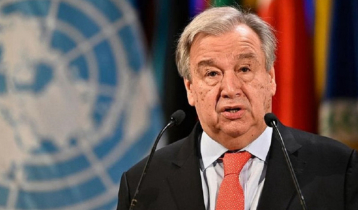Bangabandhu’s birth centenary
8 || risingbd.com
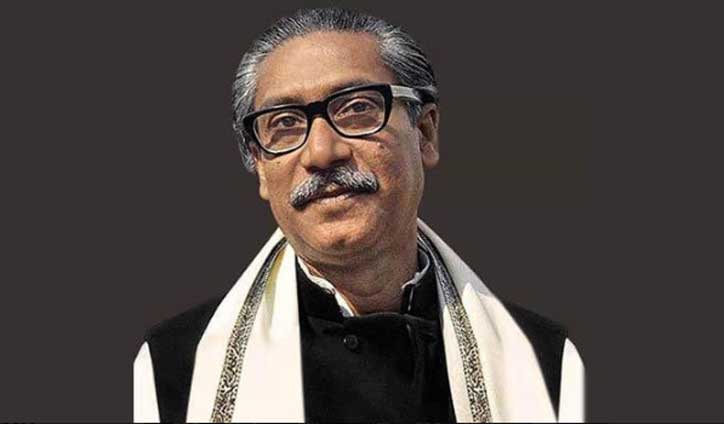
The year-long birth centenary celebration of Father of the Nation Bangabandhu Sheikh Mujibur begins today (Tuesday) at home and abroad in a befitting manner.
Bangabandhu, the greatest Bangalee of all times, was born on March 17 in 1920 at Tungipara under the then Gopalganj subdivision in Faridpur district.
His father Sheikh Lutfar Rahman was a ‘serestadar’ in the civil court of Gopalganj.
Mujib, the third among six brothers and sisters, had his primary education in the local Gimadanga School. His early education suffered for about four years due to eye ailments. He passed his matriculation from Gopalganj Missionary School in 1942, Intermediate of Arts (IA) from Calcutta Islamia College in 1944 and BA from the same college in 1947, according to Banglapedia.
Bangabandhu showed the potential of leadership since his school life.
While a student of Gopalganj Missionary School, AK Fazlul Huq, the then Chief Minister of Bengal, came to visit the school (1938). The young Mujib is said to have organized an agitation in order to impress the chief minister about the depressed situation of the region.
While a student in Islamia College he was elected general secretary of the College Students Union in 1946.
He was an activist of the Bengal Provincial Muslim League and a member of the All India Muslim League Council from 1943 onwards. In politics, he had been a fervent follower of Huseyn Shaheed Suhrawardy, a legendary leader in the Indian subcontinent and considered as the champion of democracy.
During the 1946 general elections, Sheikh Mujib was deputed by the Muslim League to work for the party candidates in the Faridpur district.
After partition (1947), he got himself admitted into the University of Dhaka to study law but was unable to complete it, because he was expelled from the University in early 1949 on the charge of ‘inciting the fourth-class employees’ in their agitation against the University authority’s indifference towards their legitimate demands.
Sheikh Mujibur Rahman was one of the principal organisers behind the formation of the East Pakistan Muslim Students League (1948).
In fact, his active political career began with his election to one of the three posts of joint secretaries of the newly established East Pakistan Awami Muslim League (1949) while interned in jail.
In 1953, Sheikh Mujib was elected general secretary of the East Pakistan Awami Muslim League, a post that he held until 1966 when he became president of the party. It was due to Mujib’s initiative that in 1955 the word ‘Muslim’ was dropped from the name of the party to make it sound secular. It is indicative of his secularist attitude to politics that he developed after 1947.
To give full time to the organizational affairs of the Awami League, Sheikh Mujib resigned from the cabinet of Ataur Rahman Khan (1956-58) after serving for only nine months.
During the regime of general Ayub Khan, Mujib had the nerve to revive the Awami League in 1964, though his political mentor (guru), Suhrawardy, was in favour of keeping political parties defunct and work under the political amalgam called National Democratic Front for the restoration of constitutional rule in Pakistan.
Sheikh Mujib was one of the first among the language movement detainees (11 March 1948).
His address on September 21, 1955 in the Pakistan Constituent Assembly on the question of Bangla language is noteworthy. Claiming the right to speak in his mother tongue, Sheikh Mujibur Rahman said: ‘We want to speak in Bengali here, whether we know any other language or not it matters little for us. If we feel that we can express ourselves in Bengali we will speak always in Bengali even though we can speak in English also. If that is not allowed, we will leave the House, but Bengali should be allowed in this house; that is our stand.’
In 1966, he announced his famous six-point programme what he called ‘Our’ [Bangalis’] Charter of Survival’.
The first ever general elections of Pakistan in December 1970 made Bangabandhu Sheikh Mujibur Rahman the sole spokesman of East Pakistan.
Under his leadership, the Awami League won 167 (including 7 women reserved seats) out of 169 seats allotted to East Pakistan in the Pakistan National Assembly.
The people gave him the absolute mandate in favour of his Six-point doctrine. Now it was his turn to implement it.
During this time, on March 7, 1971 Mujib made a historic address at a mammoth gathering of a million of people at the Racecourse ground which marked a turning point in the history of the Bangalee nation.
In his address Mujib made specific charges against the martial law authorities which failed to transfer power to the elected representatives. At the end of his speech, he declared: ‘Build forts in each homestead. You must resist the Pakistani enemy with whatever you have in hand. … Remember, we have given a lot of blood, a lot more blood we shall give if need be, but we shall liberate the people of this country, Insha Allah’ [if God blessed]. … The struggle this time is the struggle for our emancipation; the struggle this time is the struggle for independence.’
Meanwhile, President Yahya Khan and other leaders from West Pakistan came to Dhaka on March 15 to start a dialogue with the Bangabandhu and his party.
The dialogue began on the following day and continued intermittently down to March 25 morning.
During the period, non-cooperation and hartals continued unremittingly in East Pakistan.
Students and leaders of various political parties had been declaring independence from March 2 and the spree continued. Against this backdrop, at mid-night of 25 March 1971, the Pakistan army launched its brutal crackdown in different areas of Dhaka city including the University of Dhaka killing students, teachers and innocent people in the name of operation searchlight.
Thus a nine-month long genocidal killing was unleashed by the Pakistan occupation army.
Sheikh Mujib was arrested on the night of 25 March and was kept confined at Dhaka Cantonment until he was taken to West Pakistan for facing trial for ‘sedition’ and inciting insurrection.
Before his arrest Bangabandhu sent a wireless message to Chittagong over the ex-EPR transmitter for transmission declaring the Independence of Bangladesh.
A group of disgruntled army adventurers assassinated him on August 15 in 1975 along with most of his family members which is the blackest chapter of the nation’s history.
In October, 2017, the United Nations Educational, Scientific and Cultural Organization (UNESCO) recognised the historic 7th March Speech of Bangabandhu as part of the world’s documentary heritage.
Dhaka/Mukul
risingbd.com


